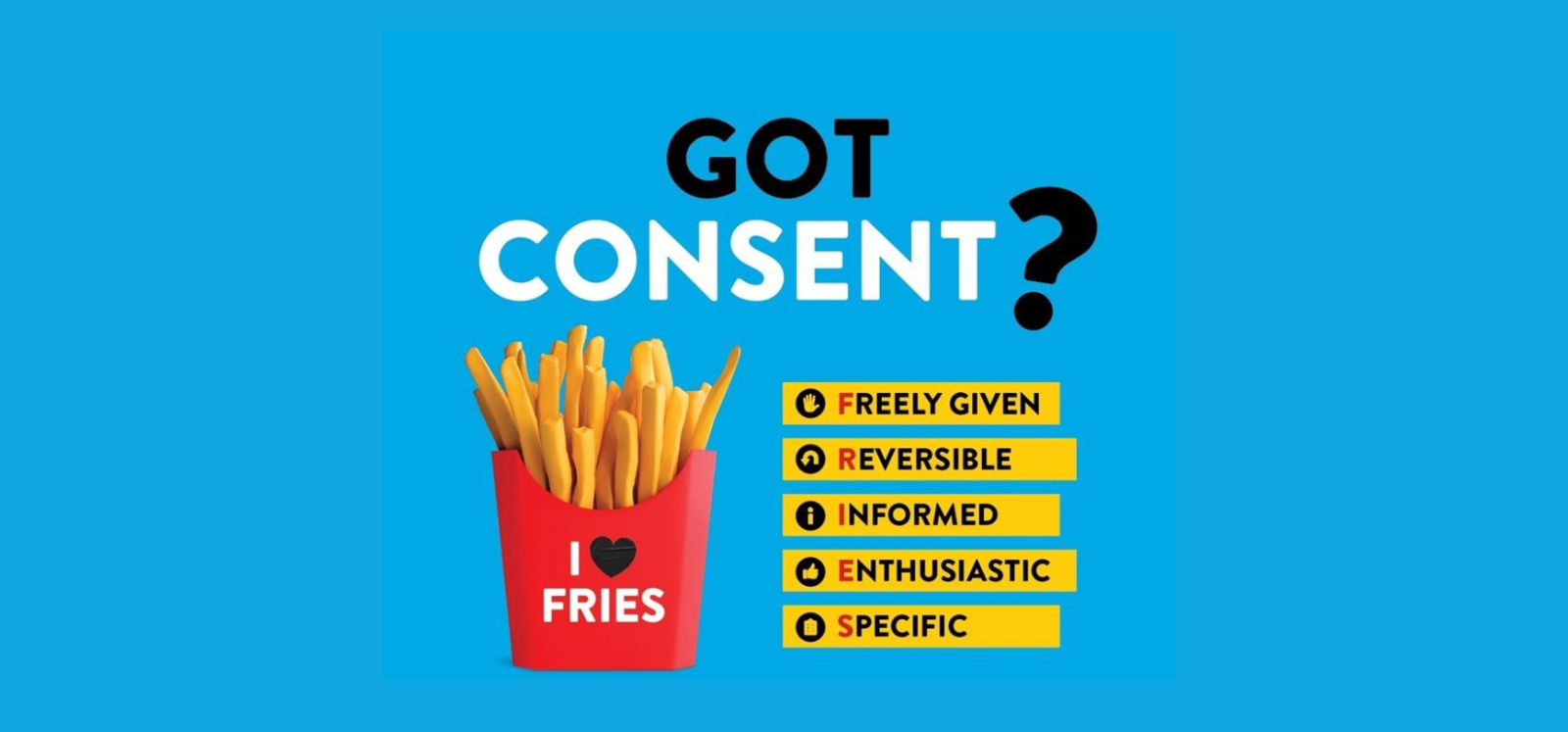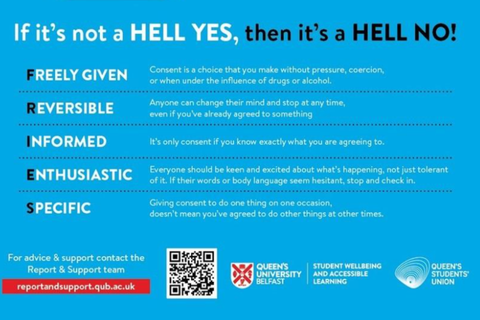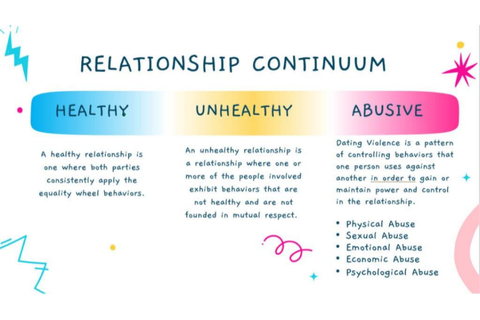Consent: Recognising Healthy & Unhealthy Relationships
When relationships feel challenging, the Student Wellbeing and Accessible Learning Drop-in offers space to talk and guidance on managing your wellbeing and studies.

Students often contact Student Wellbeing due to difficulties or breakdown in their relationships. The Wellbeing Team provide information on where to access support for the impact of this. Relationship issues can affect wellbeing and the ability to focus on studies.
We have many relationships in life including with family, friends, partners, students and work colleagues. For most of the time these relationships are positive, consensual and provide us with tangible benefits such as a sense of belonging, happiness, increased self-esteem and resilience. There is also evidence to suggest positive relationships help with our physical and mental health.
Consent is another important aspect in relationship particularly in a sexual context. Consent by definition is the ability to agree to sexual activity and to have the freedom and capacity to make that choice. Consent should be freely given, you also can change your mind at any time, informed, enthusiastic and is specific to the activity at that time.

Green Flags-Signs of a Healthy Relationship:
-
- You feel safe
- You feel good about yourself
- You can disagree in a respectful way
- You retain your sense of self and personal identity- you both can have your own interests and friends while still feeling secure in your relationship
- You feel comfortable exercising your Personal Bill of Rights- these are the rights to-
- Be treated with respect
- Say no and not feel guilty
- Experience and express feelings
- Take time for yourself
- Change your mind
- Ask for what you want
- Act only in ways that promote your dignity and self-respect as long as others are not violated in the process
If you have concerns about your relationship or recognise signs that worry you, there are many options for reaching out for support. Sometimes talking through the situation with friends or family can offer a new perspective. In a safe and healthy relationship, you will be able to talk through your concerns with your partner without fear of the consequences. They will listen to you and offer their opinion in a respectful way. You may reach an agreement that results in a change in behaviour for either or both of you. Alternatively, you may disagree and decide that the relationship is no longer serving you, which leads to another set of options. Ending a relationship, while painful, should still be respectful by each party.
When a relationship ends, we can experience many emotions, including grief surrounding the loss. This can be grieving the loss of a person, routine, support network and future plans. Students also talk to us about concerns they have with existing relationships. While Wellbeing staff can’t advise what to do in your relationship, we aim to share information about recognising healthy and unhealthy behaviours, and then signposting to supports if needed.
It is worth recognising that indicators of an unhealthy relationship can occur in any circumstance, level of commitment and extend across gender, age, sexuality, etc. Relationships are also fluid. They can move back and forth from healthy to unhealthy. All relationships start out healthy but quickly can become unhealthy.

Red Flags- Signs of Unhealthy Relationships:
-
- Lying to you or others (including starting rumours which may damage your reputation and other relationships) or attempting to influence the people around you.
- Cheating
- Jealousy
- Disrespect
- Control- can take many forms. Some behaviours may look like this- checking of phone, monitoring whereabouts and who you’re spending time with, keeping you away from friends and family, controlling money. This can lead to isolation.
- Criticism, blame and emotional manipulation.
- The Abuse end of the Continuum-
- Power can be gained through physical violence or aggression.
- Economic abuse can involve creating financial dependency.
- Threats and intimidation- this can include threatening self-harm or suicide. Threats and intimidation undermine the premise of consent.
- Unwanted touching, sexual contact without consent or forced submission. This includes deception leading to sexual relations.
- Deliberate use of words to frighten or weaken you.
Resources
-
- Unhealthy Relationships (plannedparenthood.org)
- Report + Support – Report + Support – Queen’s University Belfast (qub.ac.uk)
- Student Wellbeing Services – Inspire Student Hub (inspiresupporthub.org) QUB PIN- QUBHUB
- Ask for Angela
- RelateNI Advice & Resources
- Social Action Youth (SAY) Project Northern Ireland
Special Thanks to Consent Ambassador Ella Chamberlain for her contribution.